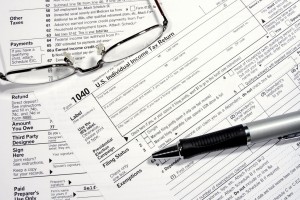 Wealthy people like me have gotten a bad rap lately. Politicians and the media will tell you that we are taking advantage of the system, that we are enriching ourselves off the backs of underpaid employees and that we aren’t paying our fair share of taxes. The release of the Panama Papers, a leaked set of documents that reveal how the super wealthy and large corporations avoid paying taxes using shell corporations, didn’t help the matter any. While there are people that are much wealthier than I that use complicated tax-avoidance schemes, the vast majority of entrepreneurs, small business owners and other members of the 1% don’t do these things. Most of us are just trying to make a living and survive tax season each year.
Wealthy people like me have gotten a bad rap lately. Politicians and the media will tell you that we are taking advantage of the system, that we are enriching ourselves off the backs of underpaid employees and that we aren’t paying our fair share of taxes. The release of the Panama Papers, a leaked set of documents that reveal how the super wealthy and large corporations avoid paying taxes using shell corporations, didn’t help the matter any. While there are people that are much wealthier than I that use complicated tax-avoidance schemes, the vast majority of entrepreneurs, small business owners and other members of the 1% don’t do these things. Most of us are just trying to make a living and survive tax season each year.
It’s easy to say that the wealthy don’t pay enough in taxes when Warren Buffet is going around telling the world that he pays a lower tax rate than his secretary. Although, one has to wonder how a typical secretary who makes around $45,000 per year that would pay 12.8% of their income tax with no deductions at all could be paying anything close to the tax rate that Warren Buffet pays, which works out to be 23.8% (Capital Gains + NIIT). We shouldn’t be using Warren Buffet’s tax return as the basis for any argument that the wealthy need to be taxed more. Warren buffet isn’t a typical member of the 1%. He’s one of the top two or three wealthiest people in the world. His tax return is an edge case that the tax system was never designed to accommodate and shouldn’t be used as an argument that the rich need to be taxed at a higher rate. Rather, let’s take a look at the tax and income data of a more typical member of the 1%–mine.
My accountant just finished my 50+ page tax return for 2015. While I won’t divulge my income, I will tell you that it’s enough to qualify me to be part of the 1%. I paid an effective Federal tax rate of 33.29% on my income in 2015. I could not take the child tax credit, contribute to a Roth IRA or take many of the tax credits and deductions afforded to the middle class because I made too much money. 30% of the deductions that I was able to take were excluded because of the itemized deduction phase out. As an employer, I had to pay half of my employees’ Social Security and Medicare Taxes, Federal Unemployment Tax and State Unemployment Insurance. On top of that, I probably paid an additional $10,000 to $20,000 in state property and sales taxes. When all is said and done, I estimate that I paid around 36% of my income in taxes directly.
I do not use any complicated tax avoidance strategies, shell corporations or any other illicit tactics to avoid paying taxes. I’m a small business owner and an entrepreneur. I have a couple of employees and I try to keep them very happy. I give to charity and invest in small businesses, such as USGolfTV and GoGo Photo Contest. I help others out with my books and by offering free consulting services. I like to think that I do a lot of good in the world. While more than 45% of Americans pay no money in Federal Income Tax each year, I’m rewarded with an effective 36% tax rate. That means from January 1st to about May 15th each year, I am giving 100% of my income to the government. Am I paying my fair share of taxes?
During the remainder of the election season, there will be bold statements from politicians that the wealthy need to pay more. Bernie Sanders wants to raise the top marginal bracket to 52%. Hillary Clinton wants to charge new surtaxes to the wealthy. And of course, Donald Trump’s plan makes no sense at all. While the chorus of people saying that the wealthy need to pay their “fair share” will likely grow louder this election season, take a moment to recognize that the top 1% of income earners already pay more than 50% of all federal income taxes already. If there were a revenue-neutral flat tax implemented without any credits, deductions or exclusions, everyone would be paying 28% of their income to taxes (most Americans are paying far less than this). Before echoing the call to raise taxes on the wealthy, recognize that the 1% are already paying their fair share of taxes, along with your share, your spouse’s share and many of your friends’ share of taxes as well.
